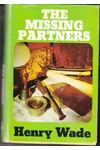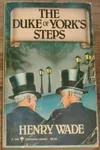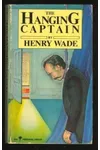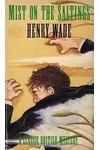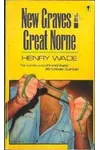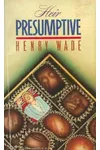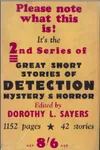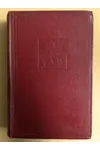Picture a British baronet who swapped aristocratic elegance for the gritty intrigue of murder mysteries—meet Henry Wade! Born Henry Lancelot Aubrey-Fletcher in 1887, this Golden Age detective fiction maestro spun tales of clever crimes and dogged detectives, all while serving as a war hero and public servant. His pen name became synonymous with intricate plots and vivid characters, earning him a coveted spot in the Detection Club’s founding circle.
Wade’s stories, steeped in the post-World War I yearning for order, offered readers a puzzle to solve alongside sharp-witted sleuths. Let’s dive into the life and legacy of this unsung architect of the classic whodunit!
The Making of Henry Wade
Born into Surrey’s gentry, Henry Wade grew up at Eton and Oxford, where privilege met intellectual rigor. His early life took a dramatic turn during World War I, where he served with the Grenadier Guards, earning a Distinguished Service Order and the French Croix de guerre. These experiences, coupled with his later roles as a Justice of the Peace and High Sheriff of Buckinghamshire, gave him a front-row seat to human nature’s darker corners—perfect fodder for crafting mysteries. By 1926, under the pseudonym Henry Wade, he published his debut, The Verdict of You All, launching a prolific career.
Henry Wade’s Unforgettable Stories
Wade’s novels blend meticulous police procedure with psychological depth, setting him apart in the Golden Age’s crowded field. His series detective, Inspector John Poole, debuted in The Missing Partners (1928), tackling financial intrigue with methodical brilliance. Lonely Magdalen (1940), often hailed as his masterpiece, weaves a prostitute’s murder into a poignant exploration of societal margins, showcasing Wade’s knack for character-driven storytelling.
A Dying Fall (1955), his penultimate work, is a tour de force of suspense, revealing its solution in the final line—a testament to Wade’s plotting prowess. Unlike the cozy village mysteries of his peers, Wade’s works often ventured into grim realism, reflecting war’s lingering scars and justice’s complexities. His inverted mysteries, like Heir Presumptive (1953), flipped the whodunit formula, letting readers follow the criminal’s unraveling psyche.
Wade’s style—precise, compassionate, and unafraid of moral ambiguity—made his stories resonate. He wrote over 20 novels and numerous short stories, many published in Ellery Queen’s Mystery Magazine, cementing his reputation among critics and readers alike.
Why Henry Wade Matters
Henry Wade’s influence on detective fiction lies in his ability to marry puzzle-like plots with human complexity. As a founding member of the Detection Club alongside Agatha Christie and Dorothy L. Sayers, he helped shape the genre’s fair-play ethos, ensuring clues were cleverly hidden but always present. His focus on police procedure and social issues paved the way for modern crime fiction, influencing writers who craved depth beyond the parlor-room reveal.
Though less celebrated today than his Detection Club peers, Wade’s rediscovery is overdue. His novels, lauded by critics like those at The New York Times for their intelligence, offer a window into a bygone era’s anxieties and aspirations, making him a vital voice in crime fiction’s evolution.
- Born: September 10, 1887, Surrey, England
- Key Works: The Verdict of You All, Lonely Magdalen, A Dying Fall
- Awards: Distinguished Service Order, French Croix de guerre
- Notable Role: Founding member of the Detection Club
Snag Lonely Magdalen or A Dying Fall and step into Henry Wade’s world of cunning crimes and heartfelt humanity!

